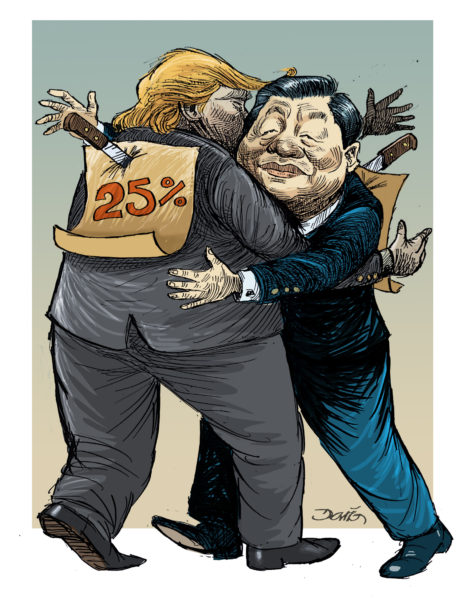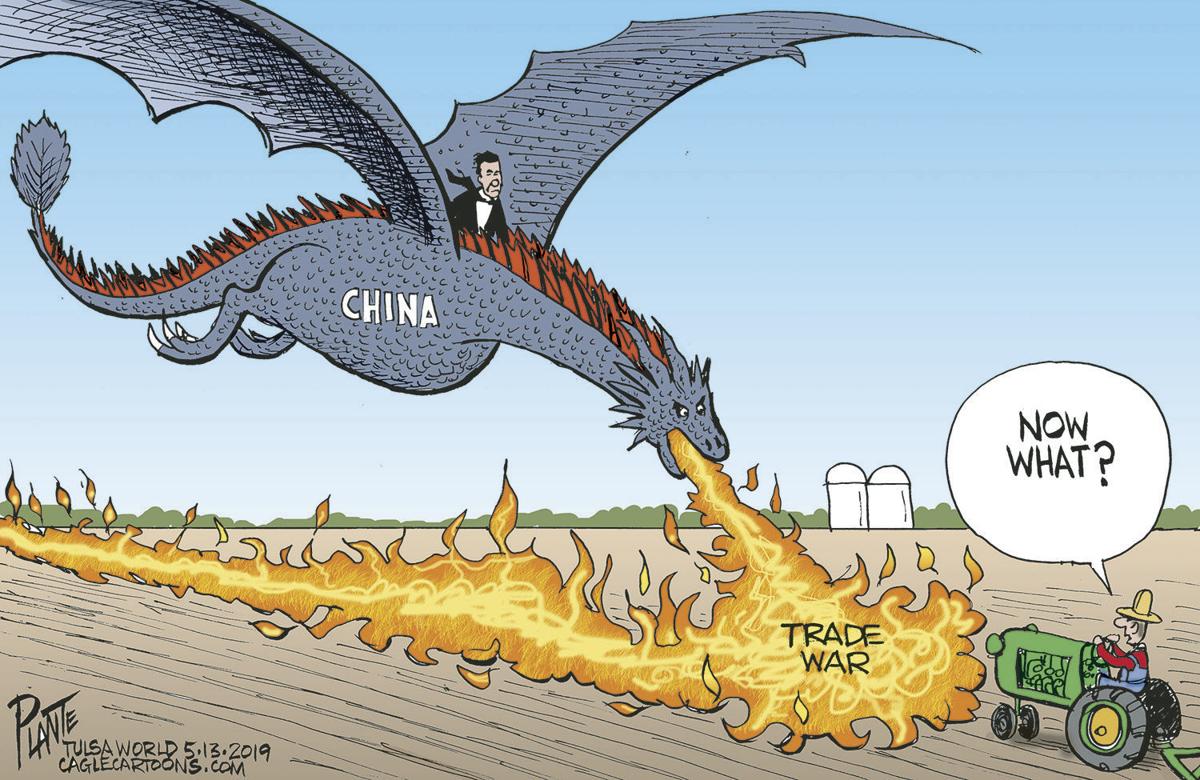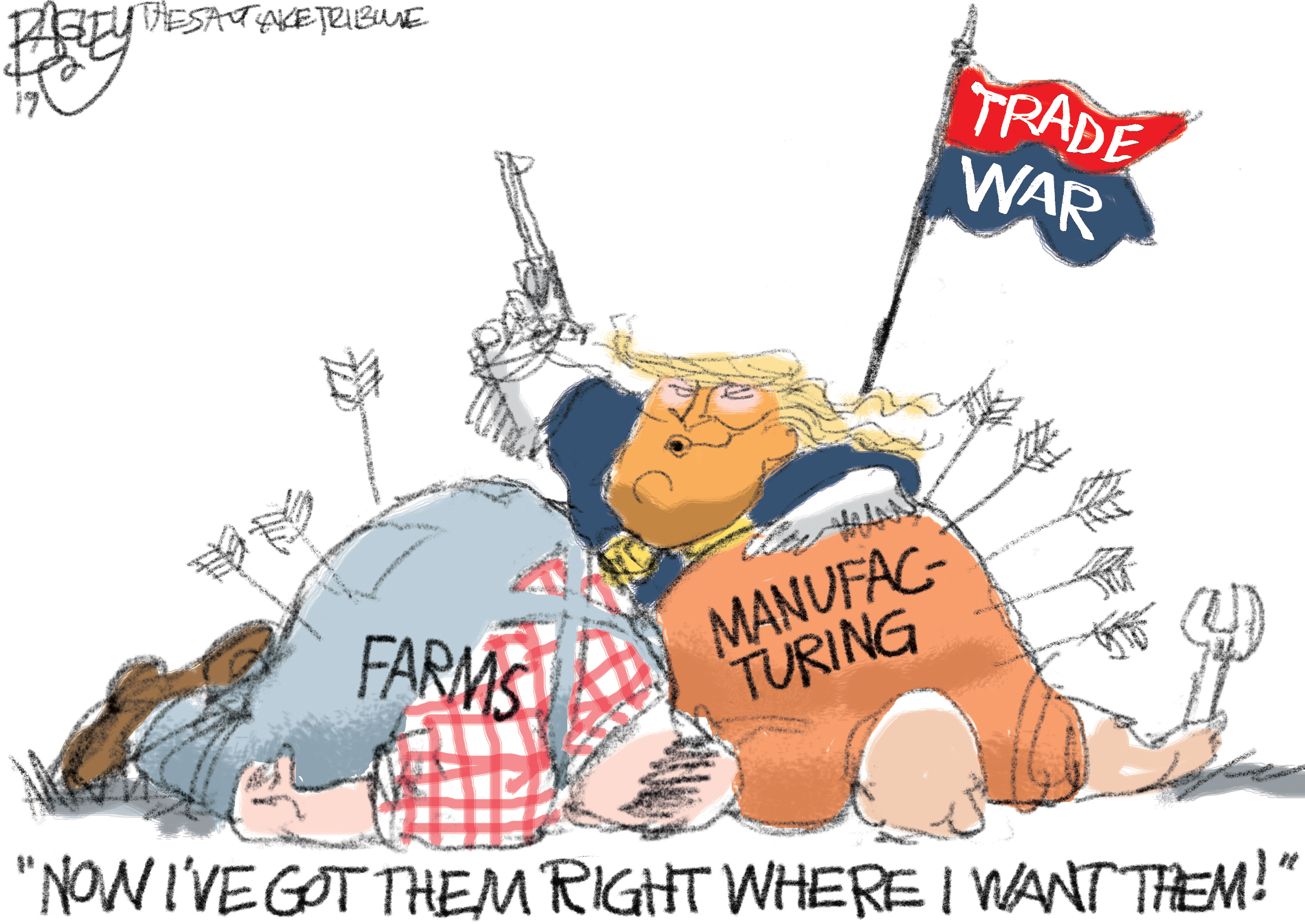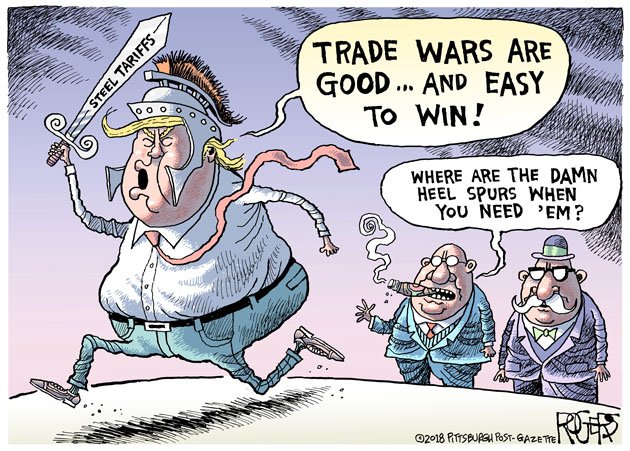The Trade War That Launched a Thousand Victory Parades
— or, How to Win a War Nobody’s Losing
In the grand theater of geopolitics, the U.S.–China Trade War has become the most entertaining reality show since Keeping Up with the Kardashians. Every morning, headlines proclaim: China victorious! America triumphant! It’s like watching both cricket teams celebrate a “historic win” before the match ends — only here, the umpire has gone home, the scoreboard is jammed, and the ball is missing.
If you’ve been following the coverage, you might think both sides have defeated each other several times over. One day it’s “Xi humbles Washington!” The next, “Trump brings Beijing to its knees!” Somewhere, a confused economist is whispering, “I think both sides just raised tariffs again,” while CNBC plays the national anthems of both countries back-to-back.
Meanwhile, in South Asia…
This, dear reader, is beginning to look suspiciously like the Operation Sindoor War between India and Pakistan — that legendary conflict where both sides declared victory so many times the UN had to issue a joint statement saying, “We’re honestly not sure what’s happening anymore.”
For weeks, Indian channels reported, “We have decisively defeated the enemy!” while Pakistani anchors yelled, “The Indians are retreating — gloriously, in reverse!” Eventually, both sides got tired, stopped shooting, and went home to air reruns of their own triumphs. To this day, nobody knows who won — though it’s widely agreed the real winner was the TRP ratings department.
Now, the U.S. and China seem to have borrowed this script wholesale. Washington slaps tariffs on semiconductors; Beijing bans rare earth exports. Stocks dip, currencies wobble, and both sides declare victory on prime time. Somewhere in the background, a factory worker in Shenzhen and a farmer in Iowa exchange weary nods: “We’re definitely winning, right?”
The Battle of the Tariffs
Picture this as a Bollywood war epic titled “Tariffs of Thunder.”
Scene one: The U.S. announces a 50% tariff on Chinese electric vehicles.
Scene two: China retaliates with a heroic 100% export restriction on graphite.
Scene three: Economists faint, inflation spikes, and somewhere an American iPhone buyer cries softly into his $1,500 device.
Every move is hailed as genius strategy. U.S. commentators proclaim, “We’re protecting American jobs!” while Chinese analysts counter, “We’re liberating global trade from imperialism!” Both sides pump their fists — and raise prices for everyone else.
It’s a perfect win-win, if by win-win you mean lose-lose-but-look-confident-doing-it.
Media Coverage: The Real Superpower
The true marvel isn’t the economic brinkmanship — it’s the sheer talent of media outlets to report perpetual victory. American news says the trade war will bring factories “back home.” Chinese state TV says it will make China “self-reliant and stronger than ever.” Meanwhile, most factories are quietly moving to Vietnam, like students sneaking out of a bad group project.
Even the graphs don’t agree. Bloomberg shows a steady U.S. recovery curve. Xinhua publishes a dragon-shaped GDP trajectory that ends in the clouds. Both sides’ economists go on talk shows armed with charts that look like abstract art and phrases like “strategic recalibration of supply chains” — meaning, “We’re still figuring out what we just did.”
The Ceasefire Nobody Asked For
In the end, the war might end not with peace talks but with mutual exhaustion. After all, neither side can afford to “win” too hard — because the other is also their biggest customer. It’s like two shopkeepers throwing stones at each other while shouting, “Come again tomorrow!”
By the time it’s all over, the only ones truly celebrating will be the meme makers — and possibly Elon Musk, who’ll sell both sides the same AI-powered factory and call it “neutral automation.”
Moral of the Story
In modern geopolitics, nobody loses — as long as you control your own media narrative. China’s “economic resilience” and America’s “strategic toughness” will both make for great press releases and terrible grocery bills.
So the next time you see a headline that says “China Wins Trade War!” or “U.S. Crushes China’s Supply Chains!” — just smile, make some popcorn, and wait for the sequel.
Working title:
“Trade War II: The Sanction Strikes Back.”
शीर्षक: वह व्यापार युद्ध जिसने हज़ारों विजय परेड शुरू कर दीं
— या, कैसे एक ऐसा युद्ध जीता जाए जिसमें कोई हार ही नहीं रहा है
भू-राजनीति के इस भव्य रंगमंच में, अमेरिका–चीन व्यापार युद्ध अब तक का सबसे मनोरंजक रियलिटी शो बन चुका है — कीपिंग अप विद द कार्दशियन के बाद। हर सुबह सुर्खियाँ चिल्लाती हैं: “चीन की शानदार जीत!” या “अमेरिका ने दिखाया दम!” ऐसा लगता है जैसे दोनों क्रिकेट टीमें मैच ख़त्म होने से पहले ही “ऐतिहासिक जीत” मना रही हों — बस फर्क इतना है कि यहाँ अंपायर घर जा चुका है, स्कोरबोर्ड अटक गया है, और गेंद गुम है।
अगर आप मीडिया देख रहे हैं, तो आपको लगेगा कि दोनों पक्ष एक-दूसरे को कई बार हरा चुके हैं। एक दिन सुर्खियाँ कहती हैं, “शी जिनपिंग ने वॉशिंगटन को झुका दिया!” और अगले दिन, “ट्रम्प ने बीजिंग को घुटनों पर ला दिया!” कहीं कोई उलझा हुआ अर्थशास्त्री फुसफुसा रहा है, “मुझे लगता है दोनों ने फिर से टैरिफ बढ़ा दिए,” और CNBC दोनों देशों के राष्ट्रगान एक साथ बजा रहा है।
इस बीच, दक्षिण एशिया में…
यह सब अब भारत-पाकिस्तान के ऑपरेशन सिंदूर युद्ध जैसा लगने लगा है — वह पौराणिक संघर्ष जिसमें दोनों देशों ने इतनी बार विजय की घोषणा की कि संयुक्त राष्ट्र को बयान देना पड़ा, “सच कहें तो, हमें भी कुछ समझ नहीं आ रहा।”
कई हफ़्तों तक भारतीय चैनल बोले, “हमने दुश्मन को धूल चटा दी!” जबकि पाकिस्तानी एंकर चिल्लाए, “भारतीय पीछे हट रहे हैं — शानदार अंदाज़ में!” आखिर दोनों थक गए, गोलीबारी बंद की, और अपने-अपने चैनलों पर अपनी “ऐतिहासिक जीत” के री-रन चलाने लगे। आज तक कोई नहीं जानता कौन जीता — हालांकि माना जाता है कि असली विजेता टीआरपी डिपार्टमेंट था।
अब वही पटकथा अमेरिका और चीन ने उठा ली है। वॉशिंगटन सेमीकंडक्टर पर टैरिफ लगाता है; बीजिंग दुर्लभ खनिजों के निर्यात पर रोक लगाता है। स्टॉक गिरते हैं, मुद्राएँ डगमगाती हैं, और दोनों तरफ़ विजय घोष गूंजता है। कहीं चीन के एक फ़ैक्ट्री मज़दूर और आयोवा के एक किसान की थकी हुई नज़रें मिलती हैं — “हम जीत रहे हैं, न?”
टैरिफ का महासंग्राम
कल्पना कीजिए — एक बॉलीवुड ब्लॉकबस्टर जिसका नाम है “टैरिफ ऑफ थंडर।”
पहला दृश्य: अमेरिका चीनी इलेक्ट्रिक वाहनों पर 50% टैरिफ लगाता है।
दूसरा दृश्य: चीन जवाब में 100% ग्रेफाइट निर्यात रोक देता है।
तीसरा दृश्य: अर्थशास्त्री बेहोश हो जाते हैं, महंगाई बढ़ती है, और कोई अमेरिकी अपने $1,500 वाले आईफ़ोन पर आंसू बहा रहा होता है।
हर कदम को “रणनीतिक जीत” बताया जाता है। अमेरिकी विश्लेषक कहते हैं, “हम अमेरिकी नौकरियाँ बचा रहे हैं!” वहीं चीनी विशेषज्ञ जवाब देते हैं, “हम साम्राज्यवादी व्यापार से मुक्ति पा रहे हैं!” दोनों मुट्ठियाँ उठाते हैं — और पूरी दुनिया के लिए दाम बढ़ा देते हैं।
यह एक परफेक्ट विन-विन है — अगर विन-विन का मतलब दोनों हारें, लेकिन चेहरा मुस्कुराता रहे हो।
मीडिया: असली महाशक्ति
असल चमत्कार आर्थिक नीति नहीं है, बल्कि मीडिया की वह प्रतिभा है जिससे हर बार जीत की कहानी गढ़ी जाती है। अमेरिकी मीडिया कहता है, “फ़ैक्ट्रियाँ अब घर लौटेंगी।” चीनी राज्य मीडिया कहता है, “यह हमें आत्मनिर्भर और अजेय बनाएगा।” और इस बीच, ज्यादातर फ़ैक्ट्रियाँ चुपचाप वियतनाम भाग रही हैं — जैसे कोई छात्र खराब ग्रुप प्रोजेक्ट से भागता है।
यहाँ तक कि ग्राफ़ भी एक-दूसरे से सहमत नहीं हैं। ब्लूमबर्ग अमेरिकी रिकवरी दिखाता है; शिन्हुआ एक ड्रैगन के आकार का जीडीपी ग्राफ़ छापता है जो बादलों में खो जाता है। दोनों देशों के अर्थशास्त्री टीवी पर आते हैं, रंग-बिरंगे चार्ट लहराते हैं, और कहते हैं “सप्लाई चेन का रणनीतिक पुनर्संयोजन” — यानी “हम खुद नहीं जानते हमने क्या कर दिया।”
वह युद्धविराम जिसकी किसी को ज़रूरत नहीं
आख़िर में, यह युद्ध शायद थकान से ही ख़त्म होगा। क्योंकि कोई भी पक्ष ज़्यादा “जीत” नहीं सकता — दूसरा भी तो सबसे बड़ा ग्राहक है। यह ऐसा है जैसे दो दुकानदार एक-दूसरे पर पत्थर फेंकते हुए चिल्ला रहे हों, “कल फिर आइएगा!”
जब तक यह सब खत्म होगा, असली ख़ुशी सिर्फ़ मीम बनाने वालों को होगी — और शायद एलन मस्क को, जो दोनों पक्षों को एक ही एआई फ़ैक्ट्री बेच देगा और नाम रखेगा “न्यूट्रल ऑटोमेशन।”
कहानी की शिक्षा
आधुनिक भू-राजनीति में कोई नहीं हारता — बस अपनी मीडिया कथा पर काबू होना चाहिए। चीन की “आर्थिक दृढ़ता” और अमेरिका की “रणनीतिक सख़्ती” दोनों ही शानदार प्रेस विज्ञप्तियाँ बनाती हैं, बस किराने की बिल बढ़ा देती हैं।
तो अगली बार जब आप कोई हेडलाइन देखें — “चीन ने व्यापार युद्ध जीता!” या “अमेरिका ने चीन को पछाड़ा!” — बस मुस्कुराइए, पॉपकॉर्न बनाइए, और सीक्वल का इंतज़ार कीजिए।
कार्यशील शीर्षक:
“ट्रेड वॉर II: द सैंक्शन स्ट्राइक्स बैक।”










No comments:
Post a Comment